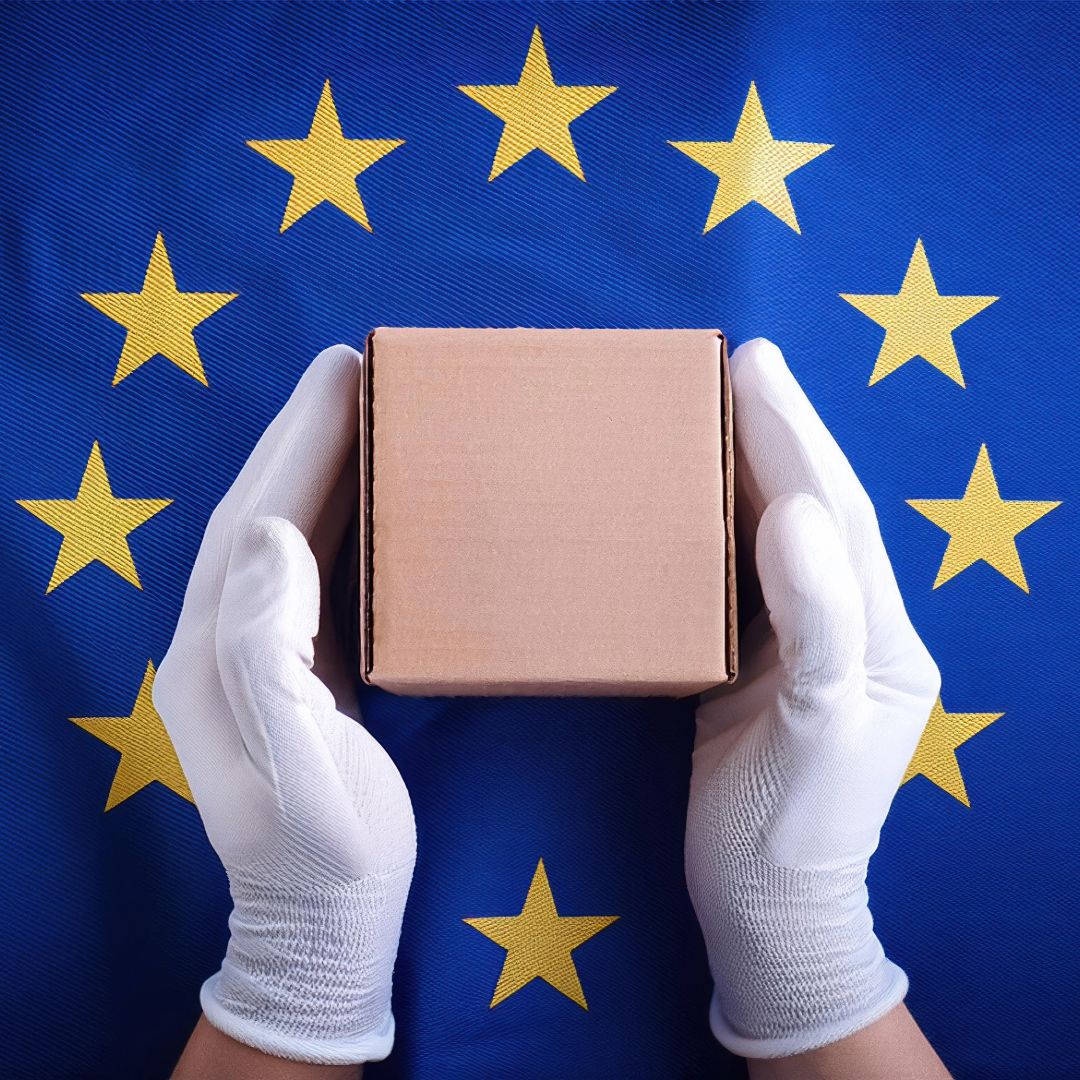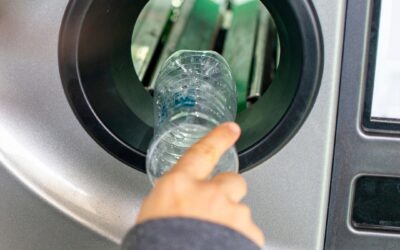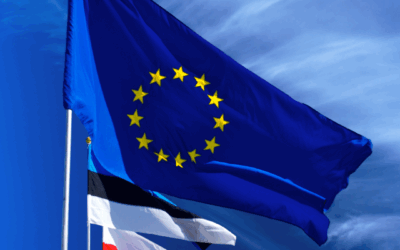Mandatory from 2026: The EU Authorised Representative for Packaging explained
- What is an Authorised Representative under EPR?
- Who needs an EU Authorised Representative for packaging?
- Extended Producer Responsibility for additional product categories
- What changes with the new EU Packaging Regulation (PPWR)?
- Packaging compliance in just a few steps
- Conclusion: Act now – not in 2026!



With the entry into force of the new EU Packaging Regulation (PPWR), companies placing packaging on the market in EU Member States will face new challenges. In addition, the increasing harmonisation of Extended Producer Responsibility (EPR) within Europe brings further adjustments and requirements. Particularly central is the role of the so-called “Bevollmächtigter”, also known as “Authorised Representative” (AR). In this article, we explain what an Authorised Representative is, who needs one, what tasks they perform, and why from 2026 onwards, there will be no way around them.
An Authorised Representative is a natural or legal person established in the EU country where packaged products are first placed on the market. They assume full responsibility on behalf of foreign manufacturers or retailers for complying with all EPR obligations – from registration and reporting to fee handling.
In short: Anyone without a branch in an EU Member State who sells packaged products there needs an Authorised Representative to handle all EPR-related duties on their behalf.
What are the tasks of an Authorised Representative?
The specific tasks of an Authorised Representative for packaging may vary from country to country but essentially cover the following:
- Registering the manufacturer with the competent authorities
- Submitting packaging quantity reports (current, retrospective, forecasted)
- Coordinating with compliance schemes (PROs)
- Paying and managing licence fees
- Meeting deadlines and legal reporting obligations
- Monitoring legislative changes
- Optional: Advising on sustainable packaging and optimising recycling rates
The Authorised Representative is not just a service provider, they are also civilly and administratively liable for non-compliance. This means they ensure legally compliant fulfilment of all obligations and protect your company from potential sanctions.
Who needs an EU Authorised Representative for packaging?
The obligation to appoint an Authorised Representative particularly affects:
- Manufacturers outside the respective EU country,
- Online retailers shipping goods directly to consumers in other EU states,
- Importers placing products on an EU market for the first time,
- Marketplace sellers or intermediaries operating abroad.
Where is an Authorised Representative already required today?
From 12 August 2026, this obligation will be legally binding in all 27 EU Member States. However, the following countries already require the appointment of an Authorised Representative regardless of company location:
- Austria
- Croatia
- Denmark
- Estonia
- Greece
- Hungary
- Latvia
- Portugal
- Slovakia
- Slovenia
- Spain
- Bulgaria (voluntary)
- Germany (voluntary)
Special considerations for the Authorised Representative
A manufacturer may generally appoint multiple Authorised Representatives, but certain restrictions apply. Within one country, for example Austria, only one Authorised Representative per product category is permitted. So, if a company places packaging on the market and also sells electrical appliances in the same country, it must appoint a separate Authorised Representative for each category.
It is also important to note that an Authorised Representative for packaging may only operate in the country where they are based. This means: For each EU country where products are first placed on the market and where the manufacturer has no local presence, a separate Authorised Representative must be appointed. A central or EU-wide representation is not possible – appointment must always be country- and category-specific.
How does Authorisation for packaging work in Germany?
Companies without a registered office in Germany that place packaged products on the German market must appoint an Authorised Representative based in Germany. This person assumes all EPR obligations, such as reporting quantities and licensing packaging. Authorisation is granted by written power of attorney and is a prerequisite for legal distribution. The Authorised Representative is liable for the correct fulfilment of all requirements.
Special case: Registration with the Central Packaging Register (LUCID) must be carried out by the company itself and cannot, unlike in other countries, be done by the Authorised Representative. However, registration can be completed quickly and easily online.
Extended Producer Responsibility for additional product categories
Extended Producer Responsibility (EPR) does not only apply to packaging. Other product streams such as electrical and electronic equipment, batteries, or textiles are also subject to specific legal requirements. Companies placing such products on the market must also handle collection, recycling, and environmentally sound disposal.
Obligations vary depending on the category: Some product streams require separate registrations, regular reporting of quantities, or specific national reporting duties. Companies active in multiple product areas should therefore carefully analyse and implement the requirements in each target country to avoid legal risks.
Compliance for batteries and electrical equipment
Packaging is not the only area where Lizenzero supports you. Together with Interzero, we also provide comprehensive assistance in meeting EPR requirements for batteries and WEEE (waste electrical and electronic equipment). This ensures that your legal obligations are reliably fulfilled across Europe in all relevant sectors.
What changes with the new EU Packaging Regulation (PPWR)?
The PPWR (Packaging and Packaging Waste Regulation) replaces the previous EU Packaging Directive (94/62/EC) and will apply directly in all Member States. The goal: less bureaucracy, more harmonisation. Rules for manufacturers and retailers will become much more transparent.
Key changes include:
- Uniform obligation to appoint an Authorised Representative in every EU country where no local entity exists
- Stricter requirements for packaging design and recyclability
- Online retailers shipping products to other Member States will no longer be allowed to supply shipping or sales packaging to consumers without an Authorised Representative from 2026 onwards
Greater obligations for companies inside and outside the EU: Any manufacturer selling products in the EU must comply with the new EPR rules, including appointing an Authorised Representative in the respective Member State
In summary: With the introduction of the PPWR, packaging compliance requirements across the EU will become clearer, more binding, and much easier, since an Authorised Representative can take on many obligations.
Further information on the PPWR can be found here.
Packaging compliance in just a few steps
- Check obligation:
Clarify in which countries you sell packaged products and whether you qualify as a “first distributor”. If so, an Authorised Representative will be mandatory from 2026. - Book a service:
By working with a specialised service provider (e.g. Lizenzero), you can quickly and easily appoint a legally valid Authorised Representative. After issuing a written power of attorney, they will take over your obligations in the target country. - Stay compliant:
Your Authorised Representative keeps you informed about legislative changes, reminds you of deadlines, and handles communication with authorities. This ensures long-term compliance while you focus on your core business.
Conclusion: Act now – not in 2026!
The obligation to appoint an EU Authorised Representative is no longer a distant prospect. Many countries already require this today, and with the PPWR it will soon be binding across the EU. Companies that delegate their packaging obligations early not only avoid fines but also secure smooth market access in all relevant countries.
If you are already selling cross-border or plan to you should review your EPR setup now. With the right partner at your side, packaging compliance is not a barrier but an opportunity for sustainable growth in Europe.

LIZENZERO.EU makes packaging compliance in Europe very easy.
Do you ship your products to different countries in the EU? Many different legal requirements and obligations can make the whole thing quite complicated – but don’t worry, we’ll do it for you. How do we do it? With our licensing service, we take over all obligations for you by power of attorney. Sounds good? We’ll be happy to advise you.
For shipping to Germany, you can easily fulfill your packaging obligations yourself via Lizenzero.de.
Deposit systems in the EU explained
Deposit systems show that simple solutions help to keep packaging in circulation and increase recycling rates. However, there are major differences within the EU: while countries such as Germany, Sweden and Finland have been using deposits for years and achieving high return rates, other Member States are still in the early stages.
Authorised Representatives in Europe: Which ones are there and what do you need them for?
Europe is an attractive but regulatory complex market. One of the more complex requirements is the appointment of an authorised representative (AR). The AR is the central interface between the manufacturer and the European market surveillance authorities. The authorised representative plays an important role in product safety and extended producer responsibility (EPR) and is therefore becoming increasingly important to ensure access to the market.
EPR in Bulgaria: An overview of your obligations and requirements
Plastics have become an integral part of our daily lives – found in packaging, clothing, and electronics. When used and recycled correctly, they can even help conserve resources. This is precisely where Extended Producer Responsibility (EPR) comes in: Manufacturers and distributors are increasingly required to take responsibility for their packaging—from production to disposal. What is mandated by EU law also has very concrete implications for companies operating in Bulgaria.



